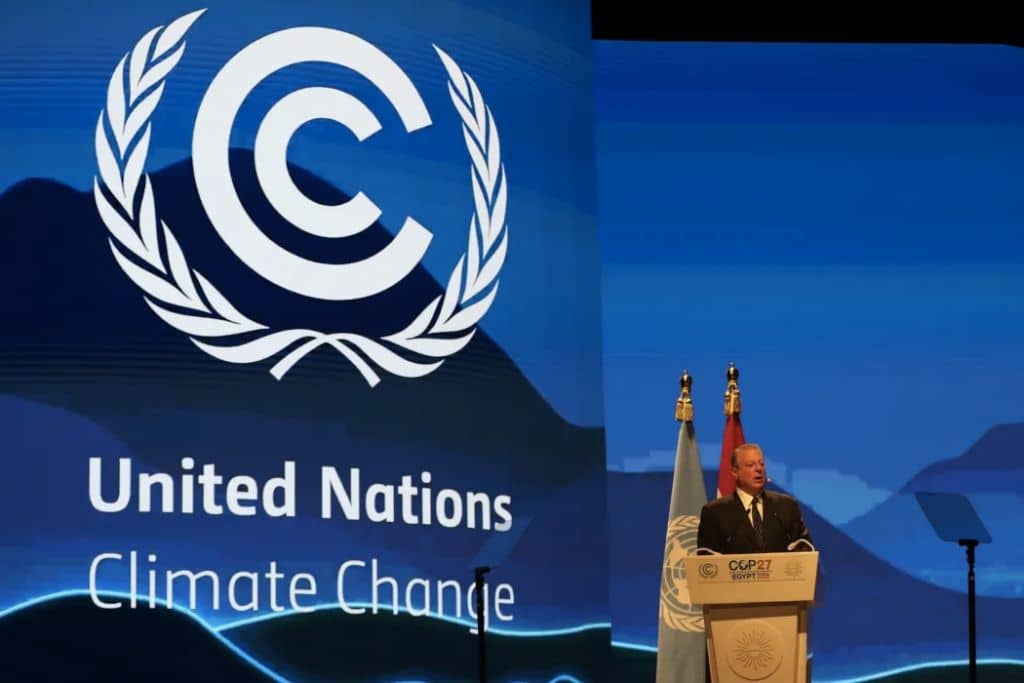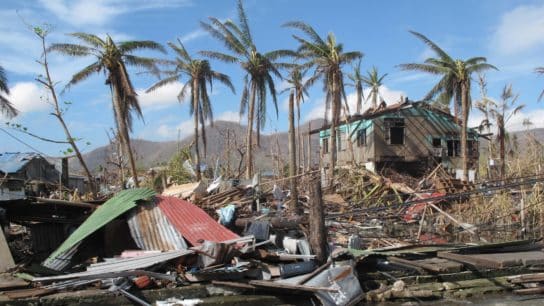The World Economic Forum has said the climate adaptation market could be worth US$2 trillion per year by 2026 – a great opportunity for the private sector, writes Judy Cheung.
By Judy Cheung
The latest UN climate change conference was meant to focus on translating promises into action – reducing emissions, adapting to global warming, financing such programmes and compensating vulnerable nations for loss and damage.
But world leaders at the 2022 Conference of the Parties to the United Nations Framework Convention on Climate Change (COP27) could not figure out how to achieve all three elements – mitigation, adaptation and finance – even though the conclusion was delayed to the morning of November 20.
Key actions to achieve peak carbon emissions were missing from the final version of the text, as were clear commitments to phase out the use of fossil fuels. Even key provisions for Article 6.4 of the Paris Agreement on a carbon market were removed.
On the other hand, COP27 did advance some areas – a loss and damage fund has been agreed upon to compensate developing countries suffering from climate change. However, the details of how it will work remain vague. Unless these are agreed, it could be reminiscent of the broken promise of US$100-billion climate finance by 2020 made at COP15 in Copenhagen.
Another key outcome of COP27 is the progress made on Article 6.2 of the Paris Agreement to enable bilateral deals on the international transfer of emission units with less oversight from the United Nations. Various countries, including Japan and China, welcomed such a move and expressed interest in taking part in a carbon market under Article 6, besides their domestic offset markets.
Nevertheless, decisions on Article 6.4 about the implementation of an open international emission credit trading market, with the public and private sector taking part, have been deferred to next year. This hinders private investment in carbon-related projects due to the uncertainty about key rules and fewer investment options.
Opportunities for Private Sector
There were more voices at COP27 asking the private sector to step up in areas of technology, innovation and finance. The private sector offers more flexibility and resources in various climate-related projects, while the market has huge potential to channel financing and investments. All the key outcomes set during COP27 come with opportunities for the private sector.
The need for more public-private partnerships to speed up climate-related projects was highlighted during discussions. Policymakers in various jurisdictions are already trying to create investable markets. The US government has announced the Energy Transition Accelerator as a new public-private effort to catalyse private capital to speed up the transition to clean energy in developing countries.
The Africa Carbon Market Initiative was also inaugurated at COP27 to fund African carbon credit projects with high integrity.
Closer to home, in October 2022 the Hong Kong Exchanges and Clearing launched Core Climate, an international voluntary carbon marketplace to connect private capital with climate-related products for carbon credit trading.
It is a sign of a growing regulatory interest in voluntary carbon market development, which provides opportunities for investment in low-carbon projects and for private companies to buy offset credits.
With more funding for climate-related projects, especially those focusing on scaling up adaptation efforts, investors expect adaptation – including the upgrading of electrical grids and weather-resistant building materials – will soon be profitable.
The adaptation industry also covers flood protection infrastructure, nature-based solutions and cyclone early warning systems, as well as financial technology, supply chains, and insurance.
The World Economic Forum has said the adaptation market could be worth US$2 trillion per year by 2026 – a great opportunity for the private sector in terms of business innovation, engagement, financing and investment.
Challenges to Private Sector
With developments come not only new opportunities, but also increasing challenges and risks, particularly greenwashing and climate-related risks of which the private sector should be mindful.
With more and more companies setting a net-zero emission target and labelling themselves as green businesses to attract investors, one of the key messages of COP27 is zero tolerance for net-zero greenwashing. The UN Secretary General set up a High-Level Expert Group to make 10 recommendations on clear standards and criteria, highlighting the importance of integrity, transparency and accountability to avoid any form of greenwashing.
The recommendations include net-zero pledges with stepping-stone targets and concrete plans, public disclosure of data and information on net-zero transition in a way that allows comparison with peers, and establishing credibility through plans based on science and third-party accountability.
The expert group also stresses that city, regional, finance and business net-zero plans must not support a new supply of fossil fuels, and, by 2025, must not contribute to deforestation through their operations and supply chains. Stricter rules and standards are called for to avoid greenwashing and to ensure high-quality credits in the carbon market – which leaves the private sector with plenty to do.
Another challenge to the private sector are the risks posed by extreme weather and the failure to mitigate and adapt to climate change.

Hong Kong climate advocate Judy Cheung at COP27 in Sharm el-Sheikh, Egypt, in November 2022. Photo: Judy Cheung.
Policymakers in jurisdictions such as the European Union and the United States are tightening up rules on climate-related disclosure, requiring more details and wider data coverage, including scope 3 carbon emissions. This creates momentum for stakeholders in embedding such information into decision-making by assessing climate-related risks and companies’ climate resilience.
That indirectly encourages and at the same time challenges the private sector, in enhancing their practices in managing climate-related risks.
This article first appeared on Hong Kong Free Press (HKFP) and is republished here as part of an editorial partnership with Earth.Org.
—
About the Author:
Judy Cheung is a consultant providing climate change and sustainability-related services to financial institutions. She is also one of the co-founders of Climate Sense, which is a local advocacy group focusing on climate change education. She is focused on green and sustainable finance, sustainable cities and energy transition, which she believes are indispensable for moving towards a low-carbon economy. At the same time, she hopes to support more local young people to take part in climate action and mobilise the momentum of local climate advocacy.














